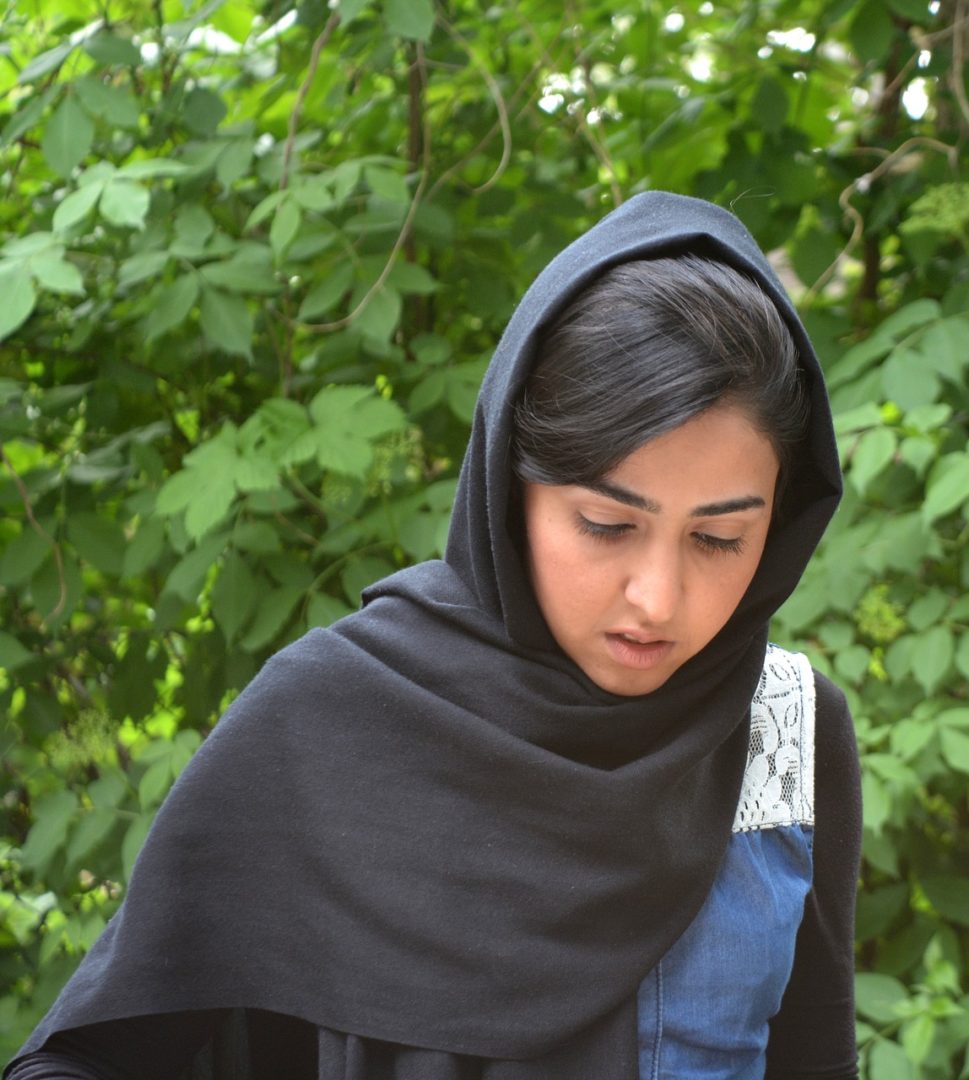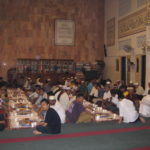It has always amused me how defensive Muslims, or those who are moved to advocate in the ’cause of’ Muslims, are on most issues they write or speak about. The veil is no exception, many views and opinions have been written with much emotion concerning a Mulsim woman’s right to wear a veil and to which I say, if one were so certain it was one’s right, one would be certain too in the embodiment of that right so as to be peaceful and joyful in its expression through one’s actions. Instead what we witness is that whilst we fuss and fret about what we claim is our God-given right, in our expression of it we reveal little if any individual volition or joy. What then, we ask, is right good for if it brings little or no joy or empowerment to those entitled to it? And if what we claim is our right is in effect inhibitive and a tool of oppression used by the male patriarchy in our societies, is it truly a right? And why then do we struggle to convince our self, through rallying the world, of our right to wear the veil yet when we do our faces are drawn and cast whilst we keep busily engaged in judging one another of whether it has been well worn or not at all? Who is any one of us to judge the other anyway? Are we not all equal in spirit in front of Allah? Do we not recall that the Quran places only that person with inner piety higher than the other and that again only in a metaphysical sense?
Muslim Women and Wearing of Veil
As an avid student of the Quran, the person and life of the prophet and Islamic law generally I have attained an understanding of pre-Islamic and Islamic history between 6-10th century AD as well as the Quranic scriptures and the reasons for the oft-quoted verses on the issue of the veil. The Quran speaks of the veil in terms of preferability of conduct and in light of the prevailing culture in 7th Century desert and war-afflicted Arabia where the position and rights of a woman had just been newly embellished. The advice was addressed to the wives of the Prophet who had been granted a privileged status by God in Society as role models and thus serving to protect them from unwarranted scandals and rumor-mongering inevitable in any society. The veil thus came to be associated as a status symbol and history reveals that it was later adopted by the Christian and Sabians and high-class ladies in western societies generally who sought to emulate the distinct high status of Muslim women (Islam in 10-12th Century AD being at its peak as a civilization).
 An understanding of 6-7th Century AD Arabia’s history and the Quran also reveal that women at the time were not veiled and as a result of a scandal that swept the society in Medina pertaining to Aisha (the Prophet’s young wife) who was left alone in the desert and a male companion who later rescued her, the first verses advising the wives of the prophet to be veiled were revealed for reasons only of the protection of theirs and the prophet’s status in the budding Muslim society. This was not a religious commandment as women had been, to that date, unveiled yet Muslims in every respect. Verses pertaining to the veil are thus of three categories; those advising the wives of the prophet specifically to wear cloaks aiming to protect their status and reputation and thus that of the Prophet too; those addressing women generally which contrary to popular perception allude merely to the need for modesty in dress; and finally verses that allude to the veil not as a headcover but a screen to be drawn between the wives of the Prophet and men who visited the house of the Prophet and in his absence sought to address his wives with an enquiry or concern. The principle of adopting such a screen between the genders was later extended to other spheres of life akin to those we retain today regarding our use of lavatories, salons, cloakrooms etc.
An understanding of 6-7th Century AD Arabia’s history and the Quran also reveal that women at the time were not veiled and as a result of a scandal that swept the society in Medina pertaining to Aisha (the Prophet’s young wife) who was left alone in the desert and a male companion who later rescued her, the first verses advising the wives of the prophet to be veiled were revealed for reasons only of the protection of theirs and the prophet’s status in the budding Muslim society. This was not a religious commandment as women had been, to that date, unveiled yet Muslims in every respect. Verses pertaining to the veil are thus of three categories; those advising the wives of the prophet specifically to wear cloaks aiming to protect their status and reputation and thus that of the Prophet too; those addressing women generally which contrary to popular perception allude merely to the need for modesty in dress; and finally verses that allude to the veil not as a headcover but a screen to be drawn between the wives of the Prophet and men who visited the house of the Prophet and in his absence sought to address his wives with an enquiry or concern. The principle of adopting such a screen between the genders was later extended to other spheres of life akin to those we retain today regarding our use of lavatories, salons, cloakrooms etc.
Purposes of modesty
The point to be emphasized thus is that though a lady may choose to wear a veil out of her own violation for purposes of modesty, she has no basis of saying Allah requires it of her, for you see, Allah requires nothing of us but that we do good to our fellow human beings and submit to no one else, whether in duty or fear, but Him. You see, if one does well even Allah need not be feared for he is a kind loving and merciful God who is oft-giving and forgiving. Islam and the religion of Allah seek not to impose hardship and restrictions on man or woman, in fact, Islam liberated women beyond any other religion or way of life to date. It placed man and woman on equal footing both in spiritual and material context and the prophet was known to enjoy and spend much time in the company of women. How then can fellow man assume to speak for Allah and attempt to instill fear in others by alluding to what we must do or not do lest we incur the wrath of God? Islam is an individual and personal faith, that guides us to the path of God. A moderate path, a path that bears absolutely no compulsion if only the scriptures were well understood.






